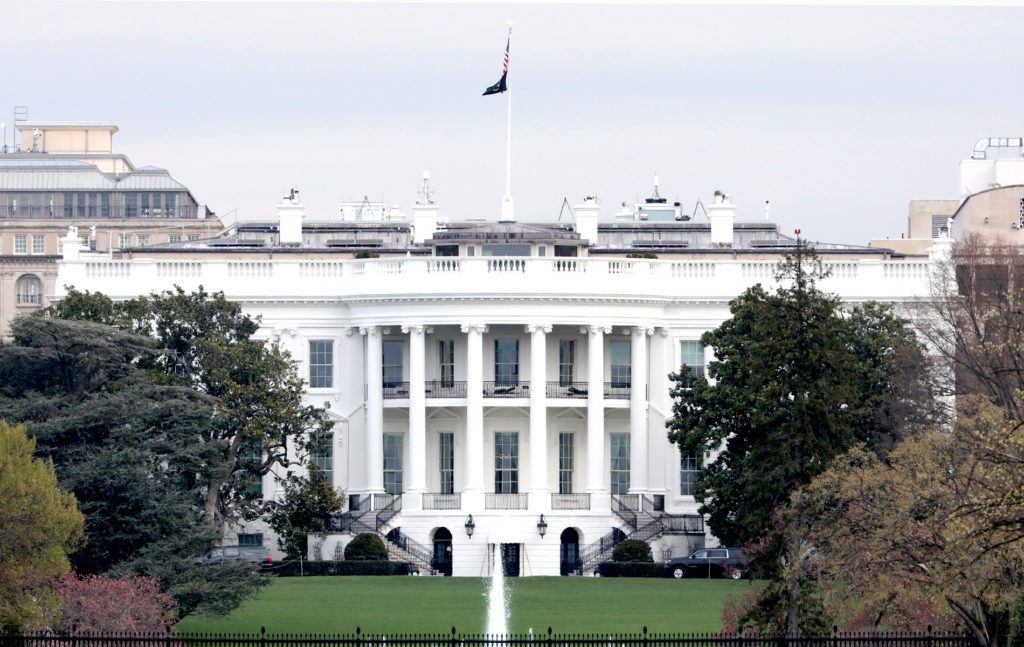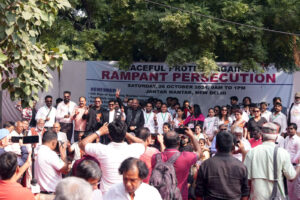
Just a day after remembering the legacy of Martin Luther King, Jr., Americans are being called to reflect Tuesday (Jan. 16) on the importance of religious liberty.
“The constitutional right to practice our faiths peacefully and openly is a core tenet of our democracy and helps us fulfill one of our highest aspirations as a Nation: to be a citadel of liberty and a beacon of freedom,” said President Joe Biden in a Jan. 12 release proclaiming Jan. 16 as Religious Freedom Day.
Presidents have been setting aside the day since it was designated by Congress in 1993.
Biden spoke of the impact of his personal faith in the release and referenced the war between Hamas and Israel.
“On Religious Freedom Day, we renew our pledge to protect that right by ensuring each person of any faith or belief can live out the deepest convictions of their conscience with dignity and respect,” he said.
The day is set aside to commemorate “the Virginia General Assembly’s adoption of the landmark Virginia Statute for Religious Freedom on January 16, 1786,” according to George Washington University. The statute was written by Thomas Jefferson.
“We believe freedom of religion includes the ability to worship without the interference of the state, the ability to freely express one’s religious beliefs without fear of retribution from the state, and the freedom to live according to one’s deepest held convictions,” said Miles Mullin, Ethics & Religious Liberty Commission (ERLC) chief of staff, in written comments.
Southern Baptist religious liberty leaders say religious freedom has deep roots in their theological convictions.
“For centuries, Baptists have advocated for religious liberty and freedom of conscience for all people. For Southern Baptists, this has been a foundational commitment, so important that we enshrined it in our confession of faith ,” Mullin said.
Andrew T. Walker, associate professor of Christian ethics and public theology at The Southern Baptist Theological Seminary, says religious freedom is an integral part of the American fabric of freedom.
“As Baptists, religious liberty is tied not only to our historical identity, but our theological identity,” Walker told Baptist Press in written comments. “We have stood as bulwarks for liberty in American history believing that faith plays a vital part of our national identity, and that the ability to live out that faith is integral to the American project. I am encouraged to the see Biden Administration’s Proclamation on Religious Freedom.”
Dan Darling, assistant professor of faith and culture and director of the Land Center at Southwestern Baptist Theological Seminary, said Baptists have stood for this basic freedom for centuries.
“From the very first Baptists in England who dared worship without official state sanction to the present day, the fight for religious liberty continues,” Darling told Baptist Press.
Walker lauds the president’s emphasis; he believes the administration should be doing more to protect religious liberty.
“While I commend the steps this administration has taken to promote religious freedom, it would do well to move beyond mere platitudes and re-examine the stance it has taken to alienate Americans of faith whose faith commitments contradict progressive orthodoxy. Religious freedom is not true religious freedom unless applied equally and consistently,” Walker said.
A recent Biden administration foster care rule states, “To be considered as a safe and appropriate placement for a LGBTQI+ child means the provider with whom the agency places the child will establish an environment free of hostility, mistreatment, or abuse based on the child’s LGBTQI+ status, the provider is trained to be prepared with the appropriate knowledge and skills to provide for the needs of the child related to the child’s self-identified sexual orientation, gender identity, and gender expression, and the provider will facilitate the child’s access to age-appropriate resources, services, and activities that support their health and well-being.”
The requirement puts religious liberty at risk for many Christians, Walker said.
Darling believes religious liberty is a tool God uses in carrying the hope of Jesus Christ to the nations.
“We believe in the power of the Spirit of God to regenerate hearts.” Darling said. “We believe the government has no right over the conscience, and we believe religious freedom paves the way for Gospel mission. In a time when religious freedom is imperiled around the world, Baptists should be vigilant in advocating for this precious first freedom.”
Mullin agreed, saying: “societies committed to religious liberty provide the best opportunity for the Gospel to spread, something we pray for each day.
“The ERLC will continue to advocate for policies that protect this first freedom both in the United States and abroad, faithfully building upon the Southern Baptist legacy of religious liberty.”














